We need to cancel, end, retire, terminate, and kill dead several diet words and phrases right now and not carry them into one more year.
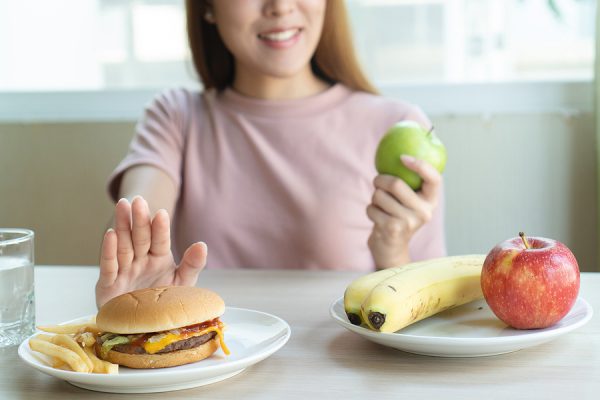
Even if you sense a hint of snark I’m my commentary below, I’m quite serious about this topic – I’m not writing this post for the sake of stirring up controversy, being contrarian, or filling up another week’s blog.
Plus, it’s not only the diet industry, and it’s not just you. It’s me too. (I’m guilty on least on some counts. Read my confessions below).
We can change. Well, you and I can. The diet industry will always be incorrigible and unfixable.
Here’s what I’m talking about:
There is some vocabulary used to describe food and diet related topics that we need to stop using.
Why? Because it may be hurting people in ways you might not imagine at first until you analyze the meaning and the consequences on our psychology.
At the minimum, these words cause confusion.
Sometimes we need a semantics upgrade to help ourselves and help others better.
Now, I’m not sure about you, but some readers of this blog might argue, “Yes, that’s exactly what it is – semantics. It’s just semantics Tom, what’s the big deal? Why so serious?
My reply would be, “Fair enough. We are talking about semantics – the deeper meanings in our language. But I’d also argue that semantics matter a lot.”
Words have power. Power to hurt. Power to help. Power to heal. Power to harm. Power to clarify. Power to confuse.
There’s something in psychology called reframing. It’s a powerful concept. This is the simple replacement of one word with another to shift the message and meaning.
Sometimes this makes all the difference in our mental and emotional state. In turn, our mental state affects our actions, our physical state and results.
I may write in more detail about these subjects in future articles, and even come up with even more phrases we need to kill off, but let’s start here shall we?
1. Good foods and bad foods.
Food is not good or bad. You are not being good or bad for eating any food. You are not a good or bad person because of what you eat. Food is just food. It’s time to cancel the idea of good and bad foods once and for all.
Part of the error is that calling food good or bad is making a damaging mistake called dichotomizing. Psychologists have found that this type of black or white thinking is associated with eating and body image disorders.
What’s most ironic is that psychology research has also found that dichotomous thinking about food is associated with diet failure.
The terminology we should use instead could include the following:
Some foods are more processed, and some foods are less processed.
Some foods are more nutrient-dense and some foods are less nutrient-dense.
I would not even go as far as saying some foods are more healthy and some foods are less healthy, because when it comes to food, it’s the dose that makes a poison.
I ate a slice of pumpkin pie on Thanksgiving. Did that make me unhealthy? No. I’m eating cake on Christmas. Will that make me unhealthy? For the love of Claus, no! It’s one slice! Small dose. Low frequency.
Of course, if we eat too much processed and nutrient-sparse foods, like say, a whole pie (large dose) or every day of the year (high frequency), our health will suffer (weight gain is likely too). But without the context of dose and frequency even using the phrase “healthier food” really has little meaning.
To say, “More processed / less processed” and “more nutrient-dense / less nutrient-dense” is an improvement. It’s objective. It’s accurate thinking.
Yeah, there’s a little grey area with degrees of processing, but it’s not that hard to figure out what an ultra-processed food is. If I show someone a carrot and a cookie and they can’t tell which is processed, then Houston, now we have a problem. Thankfully, making that distinction ain’t rocket science.
Here’s another good way to change our language:
Instead of sharing food lists and saying one list is the good foods to eat list and the other list the bad foods to avoid list, and instead of canceling the use of food lists completely, why not continue to share the lists (because they’re helpful), but rename them to something like:
Eat these foods more often. (unprocessed foods)
Eat these foods less often. (processed foods)
The implication here is that no foods should be forbidden or banned completely, while impressing the importance of eating mostly unprocessed foods.
Here are the foods you should NEVER eat:
1. Foods you hate
2. Foods you have an intolerance for
3. Foods you are allergic to
4. Foods that are rotten (spoiled)
If you haven’t made this shift in your mind yet, where you let go of this notion of good and bad foods, then doing it will make a bigger difference in your mental health, happiness and success at weight management than any other single thing.
Briefly now, here is my confession. When I wrote my book Burn the Fat, Feed the Muscle, I included food lists, the terrible 12 and the terrific 12. Guilty as charged. Granted, in the update of the book, I included the part about don’t have forbidden or banned foods, but the dichotomization was still there. In the next printing, it will be gone.
2. Cheat meals
Guilty again. I think almost all of us are, or at least were guilty of this one in the past.
If you scroll through my site, you’ll see old articles of mine that use this term. One of them literally was called, “The cheat meal manifesto.”
Hey let’s face it, people like the term and the concept. Be good for a while, then you can be bad briefly, just don’t do it too often.
The photos of The Rock on Instagram showing his infamous cheat meals like foot-tall stacks of pancakes were viewed and liked a bazillion times.
Famous bodybuilders have done the same thing for years. Seems to me at times it was almost like they were bragging. “Hey look at this giant cheat meal I’m eating and I’m still ripped and jacked! I alone possess the secret of eating the cake and having six pack abs. DM me for coaching.”
The words cheat or cheating often fly under the radar because we don’t think about the connotations.
Labelling foods as good and bad not only dichotomizes them, it moralizes them. And that’s the same problem with the names cheat meal, cheat day, or cheat food, only even worse
Calling meals cheat meals creates the same problem with dichotomous thinking as well. By using this term, we’re separating (at least unconsciously) food into two categories:
One, on the program (compliant), or
Two, off the program (cheating).
On a side note, compliant is not a great word either. It implies external control or coercion that you are supposed to obey. Adherence is a better word. To adhere means to stick. Sticking to your plan to the degree you committed (by your own personal choice) to is a more positive idea – like say 80% or 90% of your calories from unprocessed foods. Look at it that way and even if 20% of everything you eat is processed, you’re still sticking with your program. That 20% wasn’t cheating.
If your goal is fat loss, and if you eat two peanut butter cups every day, and yet all the rest of your food is unprocessed food, and your calories stay in a deficit, and you keep losing fat because you were in a deficit, did you cheat? Were you “bad?”
No. You enjoyed a treat. It was a small portion of your calories. It was within the leeway you allowed in your plan in the first place.The rest of the day you ate piles of veggies, greens, fibrous carbs, high fiber grains, lean proteins and healthy fats. You got leaner. You’re healthy. You’re sticking to your program. You’re fine!
There’s no “cheating”. There isn’t even such a thing as being “off the plan” without talking about dose and context! (What’s your guideline for adherence?)
Here’s cheating:
A person cheats on themselves and their competition and their fans when they take steroids in a drug tested competition or simply fails to disclose that their physique was built with anabolics.
A person cheats on their spouse when they covertly hook up with someone else outside their relationship.
A person cheats when they hide answers up their sleeve in the classroom for a test.
You don’t cheat on a diet. There are no cheat foods. Food is just food.
If your calorie budget was 2,000 per day and you ate 2,000 calories of peanut butter cups, I reckon we could say you were off your (healthy fat loss plan) or you weren’t living up to the guidelines you committed to for adherence. But we still don’t have to call it cheating.
You put yourself at risk of getting into some deeply disordered thinking if you continuously, habitually moralize foods. Not to mention you will be miserable and unhappy.
We can fix this simply by replacing “cheat meal” with another word. Some people have proposed “free meal.” Maybe that’s better, except if we like to use the analogy of calories as money and the balance of our bank deposits and withdrawals as surpluses and deficits, then we realize nothing is free.
What about “treat meal?” Or we could just talk about adherence in an objective way like the percentage of the time we’re doing what we planned and promised we’d do.
3. Starvation mode
Many people think that if you cut your calories too low, your metabolism will slow down so much that you stop losing weight (or you even gain weight!) They call it starvation mode.
This is not only false, it’s ludicrous when you think it through. Stop your weight loss by eating too little?
I read a UN statistic that 3 million children die of starvation every year. Why didn’t their metabolism slow down so they stopped losing weight and then the severe lack of food was a non-issue? Real starvation is not a laughing matter and that’s reason alone not to use the word casually.
But even if food shortage weren’t still a thing in some places around the world, in wealthy industrial nations where obesity is the bigger problem, eating too little is never the reason some people aren’t losing weight.
Yes of course it’s a bad idea to follow extreme low calorie restrictive diets. It’s unsustainable and it also increases the chance of muscle loss, nutrient deficiencies, low energy, poor training performance, mental fog and the list of side effects goes on. But too little doesn’t shut down metabolism and make you stop losing weight. That’s a huge myth and misunderstanding.
When you diet in a deficit, it’s true your metabolism will slow down slightly. This is a real thing and it’s called “metabolic adaptation.” This slightly slows down the rate of weight loss, so you lose a little less weight than you predicted.
But metabolic adaptation does not ever stop fat loss, only slows it down slightly.
Studies on men and women who are put on medically supervised diets with 600-800 calories a day show that the subjects achieve massive weight loss, every single time. The person who claims to be eating 800 calories a day, or even 1200, but is not losing weight is like the unicorn and bigfoot – mythical creatures that do not exist.
The way most people think of it, there’s no such thing as starvation mode.
Why does this matter? Why so serious? Because even among smart people, you still see comments on forums and social media, where someone struggling with weight loss shares their diet and calorie level in a post. Then someone who misunderstands metabolism jumps in and says, “You’re not losing weight because you’re eating too little. You’re in starvation mode.”
No they are not. They are eating more than they think, moving less than they think and their calorie calculations may have been miscalculated right from the start.
Let’s finally, completely retire this phrase, “starvation mode.” Let’s try to understand what’s really going on in the body physiologically when people hit fat loss plateaus.
By the way. Formerly guilty here. I used this term in the distant past. But for a long time I’ve been working hard to help people understand how metabolism really works.
4. Bulking
Okay let’s lighten up a bit. This last one is not as egregious as “good foods bad foods.”
Whatever word you use to describe your muscle building eating season is probably okay. It’s not going to cause eating disorders. If you’re not careful though, it might lead you into looking like poor Cartman (from the classic “beefcake” episode of South Park).
I dislike the word bulking. It carries a connotation that it will never be able to shake: As I interpret it, it means gaining a lot of fat along with the muscle.
Of course, some people think the word bulking is okay, and it’s fine if you want to keep using it, especially if you improve the term by adding a qualifier like “clean bulk.” Then again, if it’s clean (or dirty) did you just moralize it? Never mind. Rhetorical question.
Here’s what I think. Unless you’re a skinny teen or young twenty-something beginner, desperately needing to pile on pounds of total body weight and you totally don’t care about needing a long fat loss diet phase after a bulk, or bulking is going to help you in a strength sport, then adding a ton of fat along with the muscle is a lousy idea.
Plus, it could be unhealthy if body fat level or total body mass gets too high.
And did you ever think about how fat cells can multiply in cases of huge calorie surpluses and rapid weight gain?
It’s best not to eat in a surplus level that leads to rapid body weight gain in the first place, isn’t it?
What you should really be doing is lean-gaining. That’s a great description.
Taken at face value, lean-gaining implies gaining muscle while staying lean. Taken as it really comes in the real world, it means gaining muscle while gaining a minimum amount of fat. That’s still a great outcome.
Another common term that’s been used more lately is Massing.- That’s not bad either.
Of course there’s “gaintaining” aka “maingaining,” where you eat at maintenance calories and hope to gain muscle very slowly with no increase in body fat percentage. But that isn’t easy to do.
Body recomposition (losing fat and gaining muscle in the same time period) is another great phrase and an ideal outcome. But that isn’t easy to do either. (I’m going to return to this topic in 2022 and share everything new I’ve learned about the subject).
Anyway, lean-gaining means you are eating in a very small to small surplus. This is the answer to how to gain muscle without a lot of fat, and Lean gaining is the best name.
Conclusion
That’s it for today. Death to good and bad foods, cheating, starvation mode, and bulking.
I think I could come up with a lot more stuff I’d like to kill off. Can you think of any? “Clean eating” maybe? “Natural” foods? Post a comment below.
I know I could name more when it comes to fad diets and supplements. But that’s a separate topic and the list would be so long, gosh where would it end? (Just a quick tip: Forget ALL “fat burners” and “detoxes” in the new year. All scams. Death to them all!)
For now I hope you join me in kicking these terms to the curb and we all look forward to a new year with more enjoyment of food, leaner bodies, healthier bodies, and also healthier minds.Until next time,
Train hard and expect success,
-Tom Venuto, author of Burn the Fat, Feed the Muscle – The Bible Of Fat Loss
Founder, Burn the Fat Inner Circle

Tom Venuto is a natural bodybuilding and fat loss expert. He is also a recipe creator specializing in fat-burning, muscle-building cooking. Tom is a former competitive bodybuilder and today works as a full-time fitness coach, writer, blogger, and author. In his spare time, he is an avid outdoor enthusiast and backpacker. His book, Burn The Fat, Feed The Muscle is an international bestseller, first as an ebook and now as a hardcover and audiobook. The Body Fat Solution, Tom’s book about emotional eating and long-term weight maintenance, was an Oprah Magazine and Men’s Fitness Magazine pick. Tom is also the founder of Burn The Fat Inner Circle – a fitness support community with over 55,000 members worldwide since 2006. Click here to learn more about Burn the fat Inner Circle

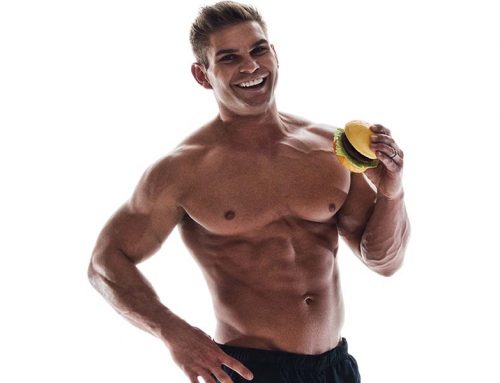
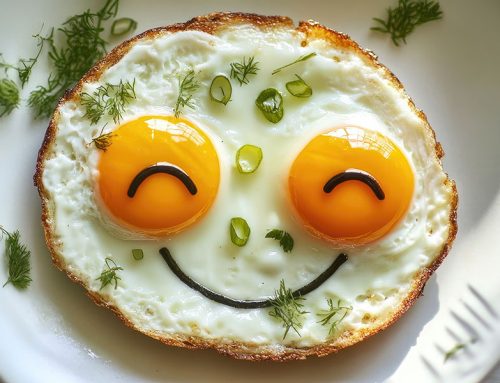
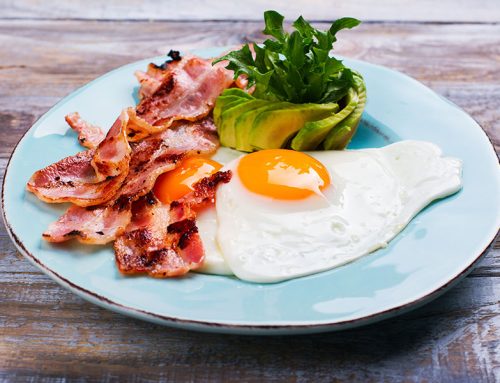

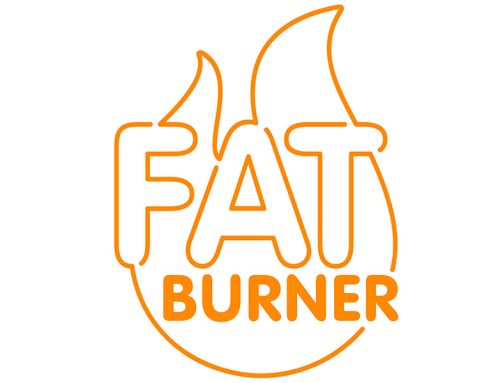
Hi Tom, It seems that you are either calling me a liar or an idiot when you say, “Studies on men and women who are put on medically supervised diets with 600-800 calories a day show that the subjects achieve massive weight loss, every single time. The person who claims to be eating 800 calories a day, or even 1200, but is not losing weight is like the unicorn and bigfoot – mythical creatures that do not exist.” I ate 500 calories a day (2 frozen dinners) for a year (25 years ago), and I did lose some weight … at first. I would not call it “massive weight loss”. Then the weight loss stopped. Just like you, the counselors accused me of cheating (eating more than the 2 frozen meals) and telling lies. Extremely demotivating.
More recently I have been eating ~800 calories per day (mostly veggies). Not gaining weight, but not losing weight either.
I appreciate what youre saying. and I understand the frustration of the challenge of weight loss. its hard. and its not always easy to understand why weight loss isn’t happening. yet, I dont see anything in my blog post that calls you or anyone a liar or idiot. those are your words not mine. And also, the difference is, you were not locked in a room in a scientific supervised study. If you were, and you were fed a measured amount of calories, and it was a calorie deficit, you would lose weight. No one dogdes the laws of physics. and no one eats 800 calories a day and doesn’t lose weight. the explanation is, youre eating a lot more than you think you are.